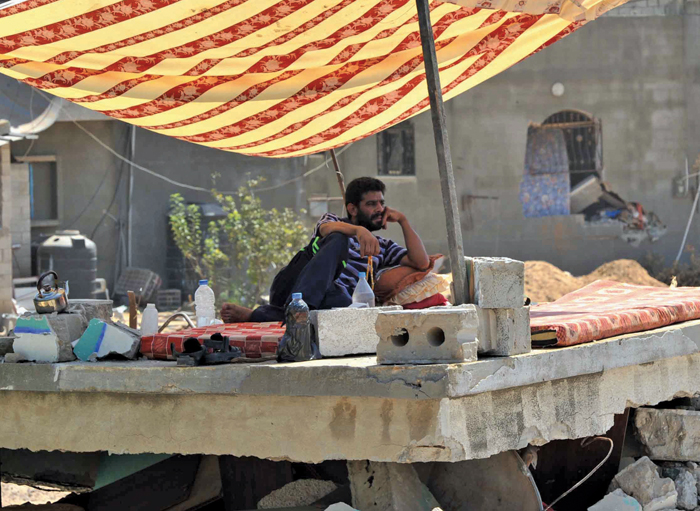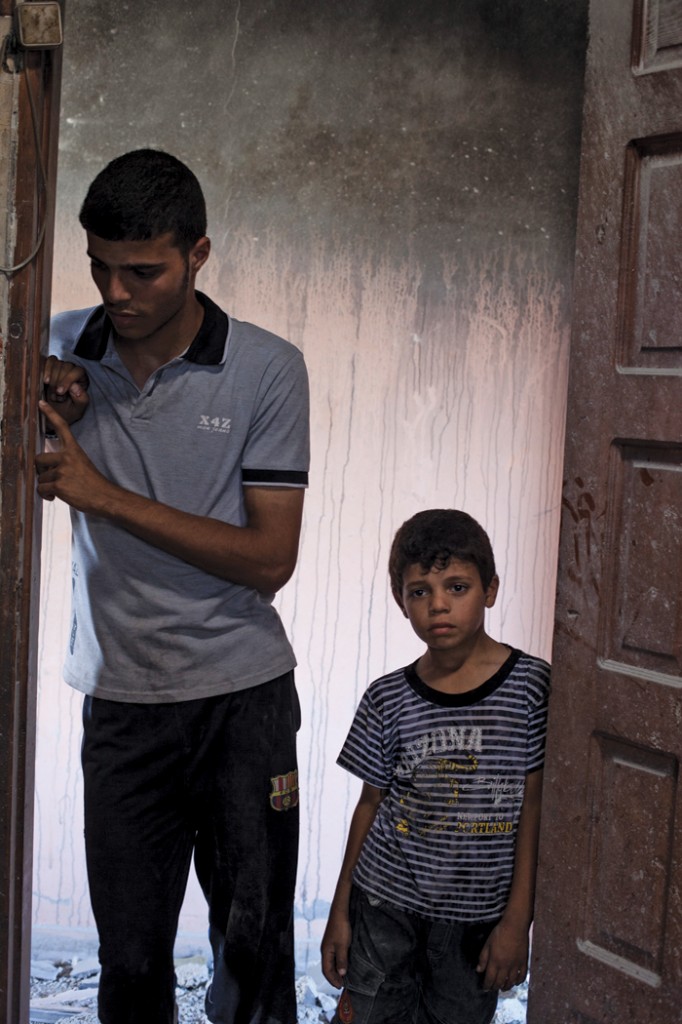
With the recent Israeli war on Gaza, much confusion has broken out among Palestinians on the possibility of joining the International Criminal Court (ICC). The Palestinian Authority (PA) has been ambiguous in dealing with this issue.
The instrument that established the ICC was signed in Rome in July 1998, and came into force in July 2002, whereby the Court was opened at The Hague. The Rome Statute is open to all states, regardless of whether they are UN members or non-members. The ICC may prosecute suspects who commit war crimes, namely grave breaches of the Geneva conventions of 1949 and their protocols of 1977; crimes against humanity, i.e., massive human rights violations in non-war zones, including the crime of apartheid; and the crime of genocide. The crime of “aggression” will be punishable in 2017.
Palestine became qualified to join the ICC after its recognition as a state by the UN General Assembly in November 2012. In particular, the admission of Palestine to the Court has become more likely after its accession to 19 treaties in April 2014, including the four Geneva conventions and seven core human rights treaties, as well as the apartheid and genocide conventions. Examples of the crimes that the ICC may punish include wilful killing, torture, attacking civilian objects such as hospitals, homes, schools, and electricity installations. A crime that is punished by the ICC and that is particularly relevant to the present context is the transfer of citizens from the occupier state to the occupied territory, in our case, Israeli settlements in the West Bank and Jerusalem. As of today there are 122 ICC member states: 34 from Africa, 18 from Asia, 27 from Latin America, and 43 from Europe and other states. Israel is not an ICC member.
According to the Rome Statute, the ICC may have jurisdiction: (1) if crimes are committed in the territory of a state party; or (2) if perpetrators are citizens of that party. Thus, if Palestine joins the ICC, the Court can exercise jurisdiction if the crimes occur in the West Bank, East Jerusalem, or Gaza. As a rule, the ICC competence relates to crimes committed after the state’s accession to the Statute; for example, if Palestine accesses the Statute in October 2014, the Court cannot decide on crimes committed in Gaza in the recent war. But the ICC may have retroactive jurisdiction, even for non-state parties to the Statute, over crimes that took place as of July 2002 if the state asks the Court to do so by a declaration under article 12.3 of the Statute. Cases may be brought before the Court in three ways: (1) by a state party; (2) by the prosecutor without a complaint from any state; and (3) by the Security Council.
In addition to ensuring protection for its civilians, Palestine may benefit from joining the ICC in three ways. First, after bringing a given case before it, the Court may issue arrest warrants through INTERPOL (the International Criminal Police Organization). INTERPOL, in turn, can request that national police offices arrest any alleged criminal landing in their territory. This would make Israeli war criminals wanted in 122 states, meaning that Israeli officials would no longer be able to travel to these states to avoid being dragged to The Hague. Secondly, in accordance with the Statute, cases may be delayed if the Security Council so decides. Thus, Palestine may use cases against Israel as bargaining chips in exchange for certain political gains, such as releasing prisoners, removing settlements, or withdrawing from certain areas. Third, joining the ICC would strengthen Palestine’s independence as a state at the global level.
The Court may prosecute anyone who commits crimes, whether perpetrated by Israelis (there is no need for Israel to become party to the Statute if the crimes are committed in Palestine) or Palestinian officials, militants, or individuals. Given its grave and on-going crimes, Israel would be the main target of the ICC. Yet Palestinians could be affected in two instances: if they wilfully attack Israeli civilians; and in cases of internal human rights violations by officials. This should motivate the Palestinians to adopt non-violent resistance methods or direct their attacks at military objects. In order to avoid being prosecuted by the ICC, Palestine could form tribunals to prosecute those who would be otherwise prosecuted by the ICC. Evidently, the main beneficiaries of joining the Court would be Palestinian and, equally, Israeli civilians.
After the Israeli offensive on Gaza in 2008–2009, the PA Minister of Justice at the time, Ali Khashan, lodged a letter at the ICC Register on January 22, 2009, declaring that Palestine is ready to accept the ICC’s jurisdiction over crimes committed since July 2002. In April 2012, the former ICC prosecutor, Luis Moreno-Ocampo, replied that Palestine does not qualify as a member of the Court because it is not a state. This situation changed after the UN vote on Palestine statehood in November 2012.
In July 2014, Palestinian Minister of Justice Saleem Saqqa and Gaza Attorney General Ismail Jabr, by two separate letters, authorised the French lawyer Gilles Devers, among other things, “to act… before the Prosecutor of the International Criminal Court in order to obtain the opening of an investigation on crimes committed on the Palestinian territory of Gaza in 2014.” On July 25, 2014, Mr. Devers filed a complaint. On August 7, 2014, two days after the visit of Foreign Minister of Palestine Riad Malki to the ICC, media reported that the PA requested that the ICC prosecutor, Ms. Fatou Bensouda, nullify that complaint. This, if correct, virtually means that the ICC cannot prosecute recent war crimes committed in Gaza. Yet, on August 9, 2014, Hasan Ouri, the legal adviser to the Palestinian President, denied the said withdrawal. If this is correct, one could still hope that the ICC would accept the complaint.
It is unclear, however, why Palestine has chosen to submit the complaint through the Gaza officials. It is also unclear why it has chosen to authorise a French lawyer and not to approach the Court directly as in 2009. It is also unclear whether Mr. Devers reactivated the 2009 declaration of Dr. Khashan or filed a new declaration. There is no confirmation of whether Palestine withdrew the complaint. In such circumstances, it is therefore unsure whether the prosecutor would accept the complaint. Nor it is clear whether the prosecutor would investigate the crimes committed in Gaza as of July 2014, as per the complaint, or as of July 2002, according to article 12.3 of the Statute, or as of November 29, 2012, after Palestine became a recognised state. Simply stated, the treatment of the ICC affair can be described as confused and ambiguous.
♦ The PA has declared its willingness to join the ICC. But practically, it seems that it does not want membership. Facing popular demands to join the ICC during the Gaza war, the PA pursued contradictory policies in approaching the ICC: the exact Palestinian official position is unknown: joining or not; withdrawing or not; giving the ICC immediate or retroactive jurisdiction? This can be called “wilful hesitation.” But the PA must join the ICC, whatever the means might be, in order to prevent future atrocities.
What can Palestine do in such doubtful circumstances?
Option I. Full Membership
Palestine can request recognition as a full ICC member state at any time. In this event, the Court would be able to exercise its jurisdiction after sixty days of Palestine’s accession to the Statute. So if Palestine accesses the Statute on, say, October 1, 2014, the Court could prosecute alleged criminals as of December 2014. The value of such accession is that it could form a deterrent measure towards preventing future crimes that might be committed in Palestine by Israel or by the Palestinians themselves.
Option II. Specific Request
If we want the Court to have jurisdiction over the recent Gaza crimes, we could wait to see what the prosecutor would say regarding the current complaint. If she were to accept the Palestinian declaration, regardless of when the ICC jurisdiction commences, that would be sufficient to prosecute for the Gaza crimes. If she rejects it for whatever reason, Palestine could file a clear declaration based on article 12.3 and ask the Court to start investigation as of July 2002; but the Court may start investigating crimes as of November 2012, when Palestine became a state. Or Palestine could become an ICC member and, simultaneously, ask the Court to investigate as in Option I.

» Dr. Mutaz Qafisheh holds a PhD in international law from The Graduate Institute (HEID) in Geneva. He is dean of the College of Law at Hebron University in Palestine, and a former UN human rights officer in Geneva and Beirut. He is the editor of Palestine Membership in the United Nations: Legal and Practical Implications (Cambridge, 2013). He can be reached at mmqafisheh@gmail.com.


